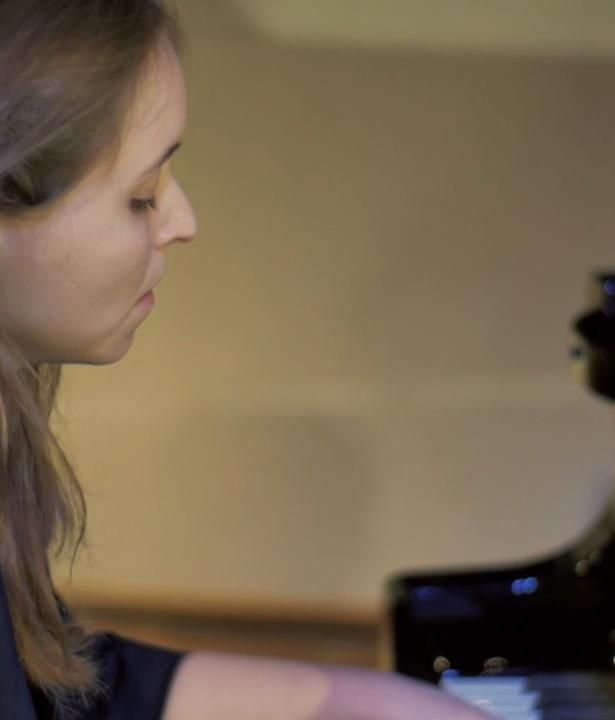Lutz Landwehr von Pragenau (music) / Lutz Landwehr von Pragenau (piano)
Text
With the Sonatine für Klavier (Sonatina for piano), published in 2019, Lutz Landwehr von Pragenau undertakes a modern exploration of the forms and tonal devices of classical music. Sonatinas are usually works in two or three movements that are easily accessible for both performers and audiences and are also very popular for piano lessons.
Works in this genre were composed by Ludwig van Beethoven (1770–1827), Muzio Clementi (1752–1832), and Friedrich Kuhlau (1786–1832), for example. Starting from the classical tradition, Landwehr von Pragenau wants to arrive at a contemporary tonal language in his Sonatina. The first and last fast movements of the three-movement piece, both written in the key of C major, are cheerful and light in character and surprise with humorous turns that break up the classical sonata form. They frame a slow movement in E-flat minor, in which a forlorn melodic flow is interrupted by delicate dissonances, finally ending in a bright and conciliatory-sounding E-flat major chord.
Text
Text
Lutz Landwehr von Pragenau was born in Regensburg in 1963 to parents from Bukovina and studied composition at the University of Music and Performing Arts in Munich and conducting at the Salzburg Mozarteum. He was a founding member of the Regensburg Orchestra at Singrün and its permanent conductor from 1999 to 2017. He teaches piano at the Institute for Music Education at the University of Regensburg and lives in Munich. Landwehr von Pragenau strives to overcome the topos of “new music” and plays with the listener’s expectations, thus continuing along a path taken by role models such as Wilhelm Killmayer (1927–2017) and Günter Bialas (1907–1995).
Text
Lutz Landwehr v. Pragenau (*1963) studied composition at the University of Music in Munich with Wilhelm Killmayer. Most recently, he received the Bavarian Composition Prize awarded by the Via Nova Choir in 2020. In his works he focuses on a radical reconciliation with traditional patterns of tonal music. For only in the conventional, familiar language does it seem possible to him to present the peculiarity and characteristics of his music in the form of deviation and discontinuity.
Text
English translation: William Connor
Externe Links





